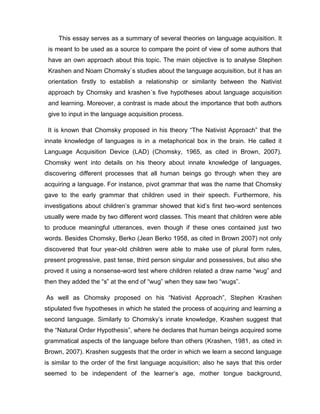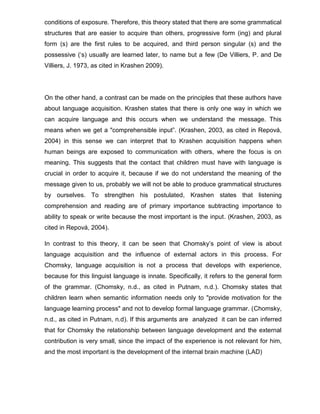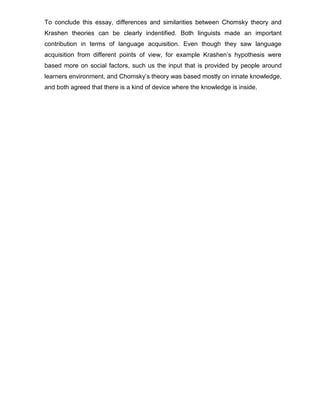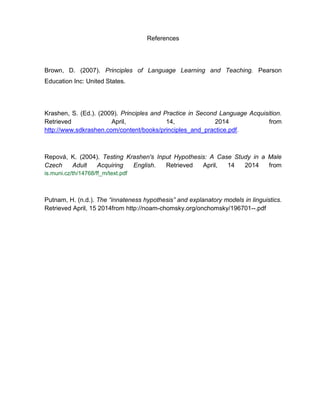This essay compares the theories of language acquisition by Noam Chomsky and Stephen Krashen. Both propose that language is at least partially innate, with Chomsky arguing it is fully innate via an innate language acquisition device (LAD), while Krashen's hypotheses focus more on external social factors like comprehensible input. While their views differ on the role of experience, both agree that some innate knowledge or device exists for acquiring language. The essay analyzes their key ideas and differences, finding similarities in positing innate mechanisms but differences in the role of external experience in the language acquisition process.




